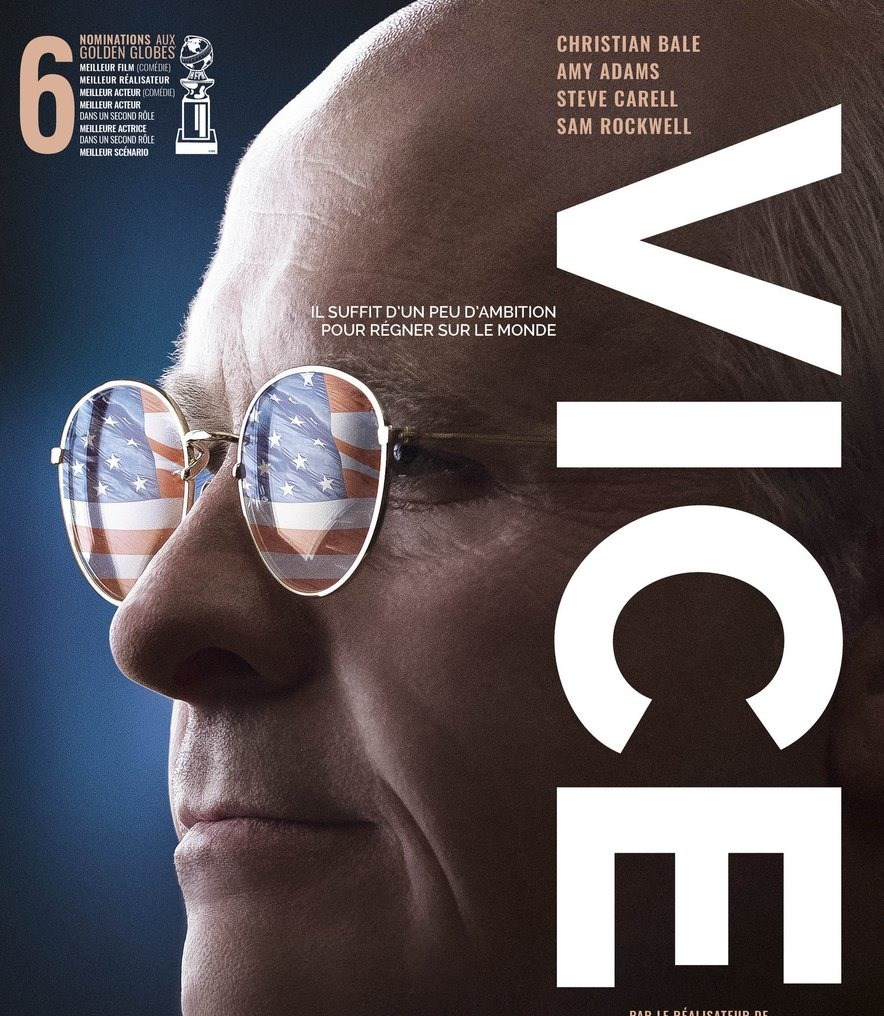
Filmmaker Adam McKay has unleashed a cinematic hit piece just in time for Christmas.
McKay is first and foremost a comedian, whose stand-up helped him lock in a gig as head writer for “Saturday Night Live” for two seasons. He additionally formed a creative alliance with actor Will Ferrell, which opened the pathway for his directing of zany comedic romps including “Anchorman,” “Talladega Nights,” and “Step Brothers.”
One of the biggest turning points for McKay, though, came in 2015. He experienced critical acclaim and a whole lot of ataboys from his peers for his Oscar-winning movie “The Big Short.” The political dramedy about the 2008 financial crash was the winner of Best Adapted Screenplay and received four other nominations from the Academy.
Like so many modern-day stars, who have parlayed their success into full-fledged liberal activism in exchange for the secret promise of more accolades and awards, McKay’s latest outing, titled “Vice,” is a biopic of the hateful and distorted kind.
In the film, he re-writes the historical annals of Dick Cheney, who served as Secretary of Defense (1989 to 1993) during the presidency of the late President George H.W. Bush, and who went on to serve as Vice President of the United States (2001 to 2009) in the administration of former President George W. Bush.
As a self-identified Democratic socialist and an endorser of Bernie Sanders in the 2016 presidential election, McKay detests most Republicans, but he appears to have a special animus for one of Hollywood’s primary targets of vilification; that is, Cheney.
The filmmaker was seemingly intent on presenting Cheney’s rise to power from a left-wing perspective and was likely simultaneously motivated to win the affection of fellow GOP-haters within the film critic community and award granting organizations. He assembled actors from his prior successful ventures and enlisted others as well to create a project that is intended to please both film critics and Oscar voters.
To realistically portray Cheney, actor Christian Bale had to undergo a physical transformation through the use of facial prosthetics and weight gain.
Nominated five times without a win and viewed by Academy members as overdue for an award, actress Amy Adams plays Cheney’s wife Lynne. Adams’s role requires her to mature in age as she transitions from a college-years wife to a vice president’s spouse.
McKay’s strategy has already yielded awards season results. With six nominations, the liberal fictional treatment of Cheney’s life in “Vice” has resulted in the highest number of nominations in the upcoming Golden Globe awards. The movie has also garnered nine Critics’ Choice Award nominations and two Screen Actors Guild Award noms, as Oscar talk ensues.
An intriguing thing has coincided with the release of the film, though. Despite praise given for the performances of Christian Bale and Amy Adams, many establishment movie critics are expressing disappointment with the biopic and even some hostility. The critic community apparently loathes Cheney more than McKay does, and some have panned the movie for being too soft on the former vice president.
A Daily Beast review calls the film a “baffling tonal hodgepodge” that “at best marginally humanizes Dick Cheney and at worst lionizes him…” And a review in the San Francisco Chronicle states that “the failure of “Vice” is a failure on its own terms. If Cheney is really as bad as McKay believes — an empty shell of ambition, a destructive and malign force in American life — he warrants serious moral horror, not a smirky treatment that assumes, going in, that we all agree.”
Despite the fact that McKay channeled plenty of hate into “Vice,” his final cut appeared to move in two different directions. Apparently McKay’s humor background and sensibilities compelled the filmmaker to insert a sufficient amount of comedic material, but it may have served to undercut the perception by some that it met the appropriate attack mark.
McKay’s end product seems to be a conflicted work that is caught between comedy and drama, and the movie characters are thereby left without discernible motivations, floating about in a farcical superficial storyline.
Also, by presenting an all-powerful Cheney and an empty-suited Bush, the film unwittingly takes the 43rd president off the hook for the list of wrongs of which the left maintains the Bush administration is guilty.
Audiences get their first glimpse of the former vice president as a heavy drinker and brawler, who is expelled from Yale. He is being cajoled by his wife Lynn into changing his life.
Soon a revved up ambitious Cheney works for a future Secretary of Defense Donald Rumsfeld, who is portrayed in an overly cavalier manner by Steve Carell. Cheney learns the political ropes from Rumsfeld and ends up conning the clueless caricature of G.W., played with zero depth by Sam Rockwell.
The “Vice” version of Cheney easily persuades the supposedly simpleton GOP nominee Bush into an arrangement that hands excessive power over to Cheney, allowing him to be the de-facto leader of the free world. Soon enough Cheney and his cadre of neo-cons slowly take over the reins of the presidency.
Although the movie starts out by informing the audience via an onscreen message that “Vice” is a “true story,” people in the know, including former Bush Attorney General Alberto Gonzales and former Undersecretary of Homeland Security Michael Brown, have pointed out that the film’s central theme of Cheney being the so-called man behind the curtain that called the shots for a feckless president is plain old fiction.
You must be logged in to post a comment.